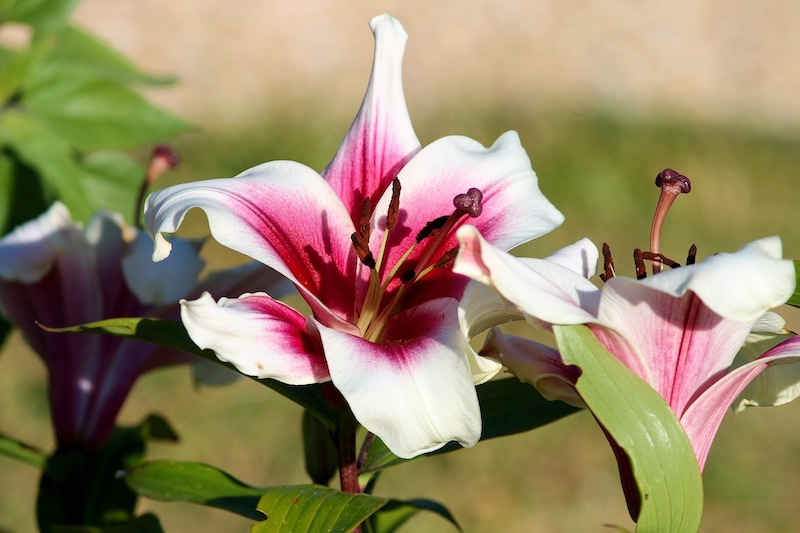Lilies are a popular garden choice due to their beautiful blooms and relatively easy maintenance. However, one concern for many gardeners is whether or not lilies are deer resistant. While no plant is entirely deer-proof, some plants are less appealing to deer and, therefore, less likely to be eaten.
In general, deer prefer plants that are high in moisture, young, and succulent. Lilies unfortunately are a preferred food source for deer. However, lilies go dormant during the winter and are not available to graze during this time. During the growing season, deer have more options and may find more accessible food sources than your garden bed lilies.

According to Rutgers University, lilies are rated as "Occasionally Severely Damaged" on their scale, meaning they should be planted with protection if you have deer in the area. It is important to note that the attractiveness of a plant to deer can vary depending on the individual deer and the specific circumstances, so it is always a good idea to take preventive measures to protect your plants if you are concerned about deer damage.
| Rarely Damaged |
| Seldom Severely Damaged |
| Occasionally Severely Damaged |
| Frequently Severely Damaged |
Keeping Deer Away From Lilies
There are several strategies that gardeners can use to keep deer away from lilies and other plants in their garden. One option is to use physical barriers, such as fencing or netting, to prevent deer from accessing the plants. Deer repellents, which are chemicals or natural substances that deter deer, can also be effective at keeping deer away from lilies and other plants. Other options include planting lilies in areas of the garden that are less attractive to deer, such as near a busy street or near plants that deer find less appealing. Gardeners can also try planting lilies that are known to be less attractive to deer such as tiger lilies, which are less likely to be browsed on by deer than others.

Will Lilies Come Back After Deer Eat Them?
Depending on the extent of the damage, lilies can come back after being eaten by deer. If the deer have only eaten the leaves or flower buds of the lily, the plant will likely recover and regrow new foliage. However, if the deer have eaten the entire plant or damaged the bulbs, it is less likely that the lily will recover. Generally, it is best to take preventive measures to protect lilies and other plants from deer damage, as it can be difficult for plants to recover from severe damage. However, if deer have damaged your lilies, it is worth trying to help them recover by providing proper care. Trim any damaged leaves and add a slow-release fertilizer in the spring. Lilies benefit from regular watering and well-draining soil, and adding fertilizer can help provide the nutrients that the plant needs to grow strong and healthy.
Sources: Rutgers New Jersey Agricultural Experiment Station ‘Landscape Plants Rated by Deer Resistance’ 2018
 |
Author Chris Link - Published 1-27-2023 |
